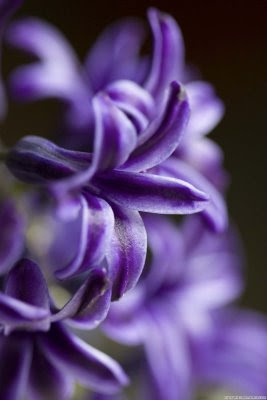Thoughts from Garden Meditations
One of the preparations from ordination has been to spend time in meditation. I will admit, I have a difficult time with the traditional, sit-on-the-cushion-empty-your-mind form of this spiritual art. For me, meditating while doing something, such as walking a labyrinth or gardening, is far more effective.
As I was gardening yesterday, I suddenly realized that many of our flowers/plants have been given common names that are linked to the Sacred. In my garden alone, I have Jacob's Ladder, Moses in the Cradle, Solomon's Seal, Marigolds, Monk's Hood, Rose of Sharon, Lily of the Valley, and Star of Bethlehem to name a few.
The thought came to me that perhaps we named the plants this way because gardening is so meditative. There is a poem I have mentioned before that states, "One is closer to God in a garden/Than anywhere else on earth," by Frances Gurney. My thinking is that because gardening leads us to a meditative state, our minds quickly go to what is sacred. When observing our plants, therefore, we see reminders of the sacred texts, images, and places we know. Viola! We give our plants sacred names.
If this is so, I wondered how it played out in other cultures where the Bible is not known. What I found was interesting. I will share one other culture.
The Greek and Roman deities' names are common in plants. For instance - Agave, mother of King Pentheus. She was a "thorny" woman, much like the plant named after her. Artemisia is named after Artemis, also known as the goddess, Diana. One of my favorite herbs, mint, is named after poor Mintho, who was turned into the lowly plant by the jealous, Persephone. Then, we have the Muses, Thalia and Nerine, both have flowers named after them. Thalia is a tall, graceful plant, while Nerine is a genus of bulbous flowers.
There are more, but I think you have the idea.
So, I invite my readers from other lands, other cultures to share the names of their plants. I love learning about how we connect to the Divine, the Sacred. Gardening is one way...a way I truly love!
Namasté!
As I was gardening yesterday, I suddenly realized that many of our flowers/plants have been given common names that are linked to the Sacred. In my garden alone, I have Jacob's Ladder, Moses in the Cradle, Solomon's Seal, Marigolds, Monk's Hood, Rose of Sharon, Lily of the Valley, and Star of Bethlehem to name a few.
Marigolds - named after Mary, the mother of Jesus.
But, also a sacred plant to the Hindus, where it is called Genda, possibly named after the Gonda people, who have a myth about the origin of the flower. The Marigold's genus name, Tagetes, comes from the Etruscan god of wisdom, Tages.
The thought came to me that perhaps we named the plants this way because gardening is so meditative. There is a poem I have mentioned before that states, "One is closer to God in a garden/Than anywhere else on earth," by Frances Gurney. My thinking is that because gardening leads us to a meditative state, our minds quickly go to what is sacred. When observing our plants, therefore, we see reminders of the sacred texts, images, and places we know. Viola! We give our plants sacred names.
If this is so, I wondered how it played out in other cultures where the Bible is not known. What I found was interesting. I will share one other culture.
The Greek and Roman deities' names are common in plants. For instance - Agave, mother of King Pentheus. She was a "thorny" woman, much like the plant named after her. Artemisia is named after Artemis, also known as the goddess, Diana. One of my favorite herbs, mint, is named after poor Mintho, who was turned into the lowly plant by the jealous, Persephone. Then, we have the Muses, Thalia and Nerine, both have flowers named after them. Thalia is a tall, graceful plant, while Nerine is a genus of bulbous flowers.
There are more, but I think you have the idea.
So, I invite my readers from other lands, other cultures to share the names of their plants. I love learning about how we connect to the Divine, the Sacred. Gardening is one way...a way I truly love!
Namasté!




Comments